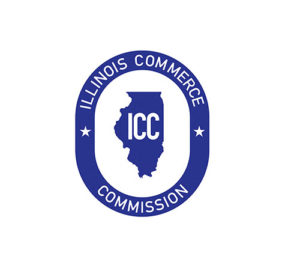Keeping the Proper Focus
Written by Michael A. Drudy, Executive Director, RSSI
Louisville, Ky. – I have spent more than 50 years in the rail industry, all of it in the Communications & Signals segment. I will be retiring after the joint REMSA/RSSI Exhibition in Louisville, Ky. on July 9 – 10, 2024, so this will be my final article published in the Railway Age C&S Buyer’s Guide. I thought I would take this opportunity to pass on some observations and concerns I have about the future of an industry that is close to my heart.
I was hired in the signal department as a helper on a line gang right out of high school. I was fortunate to complete an engineering degree at Purdue University while I was working, and ended up in charge of the C&S department at Conrail before the railroad was purchased by Norfolk Southern and CSX.
The signal department is focused on the safety-critical aspect of the rail industry. The periodic testing of highway warning devices, the signal system and its components are all directly related to moving trains safely. This safety mindset builds a strong sense of responsibility in those employees who choose signaling as a career.
I have seen many positive changes in the rail industry. The increased focus on the safety of train movements, the safety of the public and the safety of the employees are foremost.
The railroads’ view of their responsibility to keep the environment clean and to do their part to conserve energy has significantly changed over the years as the railroads strive to be a good partner in the communities where they operate.
Computer technology has made all industries more efficient, but this is especially true of the transportation industry, and particularly the signal departments on the railroads.
Microprocessors to control train movements and highway warning devices with remote control and logging capabilities have replaced relay-based systems. The advances in digital communications have allowed Positive Train Control to enforce safe train movements if the engineer does not comply with the information received from the signal system.
These advances have made the railroads safer and more efficient, but I have a concern as the industry moves forward.
As a signal manager, I often found that the objectives and goals of the signal department were at odds with the objectives of other departments. To complete tests or to make sure the devices we were responsible for were kept in proper working condition, we often needed to temporarily prohibit train movements in an interlocking, a section of track or a hump yard. This was often in conflict with a dispatcher, yardmaster or track supervisor whose goal was to keep trains moving, or with the track department trying to restore the track to service after a major upgrade.
Yet, even if our objectives sometimes conflicted, everyone understood that if the trains don’t move, the customer doesn’t get served. So we always found a way to work together to keep the trains moving safely and for the necessary testing and maintenance to get done. This understanding started at the top of the company and filtered down through the layers of management to the employees of all departments.
My concern going forward is that this idea of serving the customer first may no longer exist at the top or intermediate levels of the rail companies. It has been replaced by a focus on increasing stock values and meeting Wall Street’s expectations. It appears this is especially true of precision railroading. Business measurements of operating ratio, ROI and ROA are important tools to ensure that a business is running efficiently, but if these objectives come at the expense of the customer, the business will not last. When serving the customer is replaced by achieving a goal on someone’s pie chart or someone’s bonus objective, the business will not last.
The recent pending ruling by the STB to allow reciprocal switching was based on justified customer complaints. This ruling is based on if the railroad does not meet minimum service standards.

The Staggers Rail Act, which partially removed government regulations from the railroad industry, allowed the railroads to again be competitive in the transportation industry. It has resulted in lower prices and better service for the customer while allowing the railroads to become profitable and to invest in their infrastructure. But if rail management takes advantage of deregulation and once again puts their interest ahead of the customers, additional regulation will take place.
Serving the customer must be the main purpose of our business, no matter what department you work in or position you hold.





